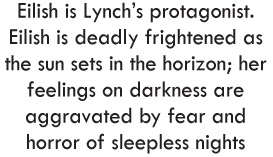“Prophet Song” by Irish author Paul Lynch won the Booker Prize for the year 2023.
 Lynch was presented his trophy by Sri Lankan Shehan Karunatilaka, the 2022 winner of the Booker Prize at Old Billingsgate in London recently.
Lynch was presented his trophy by Sri Lankan Shehan Karunatilaka, the 2022 winner of the Booker Prize at Old Billingsgate in London recently.
“Prophet Song” published by ‘Oneworld’ is a dystopian novel that illustrates and defines how the fibres of rot and impairment of politics affect every aspect of a society. The novel could be distinguished as a flawless and impeccable study of vapidity and banality of totalitarianism.
As a certain critic mentions the novel makes a meticulous and diligent imagination as to how any society could be tormented by the slow-building mechanisms that are ubiquitous in a regime that has got the characteristics of authoritarianism.
Lynch shows such an outstanding ability of drawing the pictures of plots, arrests, fading, melting, and vanishing of the very fabric of society on the mind of his readers. The novel on the other hand is just like a parable and moral tale which is surrounded by a family that lives in Dublin.
Captivating
Lynch’s strategy of presenting on the imposition of the nature of a hocus-pocus and savage newly introduced state order as well as that of its cruel police that are covertly operated is rather captivating.
Eilish is Lynch’s protagonist. Eilish is deadly frightened as the sun sets in the horizon; her feelings on darkness are aggravated by fear and horror of sleepless nights. Lynch’s ability of locating the finest auguries and presages is incredibly amazing.
Critics remark that the novel itself becomes rather vivid and pivotal notably for the Irish readers as the story that Lynch brings out within the novel is the shift and conversion of the detectable and perceptible urban landscape of the Irish capital Dublin unto a red tape and militarized dystopia.
Lynch sends his protagonist Eilish on a walk along the greenways of ‘Phoenix Park’. However, the kind of reassurance that had prevailed along the streets in Dublin turns into highly unpredictable circumstances that paint a city where the insecurity, brutality and chaos abide, whilst the sense of security and mental solace take their leave.
The tower block at Dolphin’s Barn is targeted by a sniper. The city is disturbed by the huge noise of the helicopters that swam across every nook and corner. As noted by critics, the narrations of this particular calibre may recollect a disturbed bygone era in Ireland as well as that of a future that would have the traits of dystopic and monstrous way of survival.
Comparisons
Critics would expect concerned readers to make comparisons between ‘Prophet Song’ and the other fables written so far which have had the essence of the dystopian novels.
At this juncture, George Orwell’s ‘Nineteen Eighty Four’ and Margaret Atwood’s ‘The Handmaid’s Tale’ would be the most sought after with a huge reader base.
Lynch gives his book a clear-cut and unmistakable Irish genealogy and descent of conjectural fiction.Writing to the Washington Post, a correspondent stated, “Lynch is not the first Irish novelist to have translated his own country into the nightmarish shapes of a futurist dystopia. In 1990, ‘The Bary House’ by Eilis ni Dhuibhne depicted Ireland in post-nuclear catastrophe, an anti-Eden buried beneath permanently damaged soil and rock”.
The utter most remarkability of Prophet Song is its candour and outspokenness of its rudimentary ethical question: which steps would you take, if this particular situation existed right here? The novel draws a picture on an Irish epic of both ideological and civic collapse that suggests the reading public to have their concern on an array of matters that have got quite similar characteristics, reported currently across the world.
Between erroneous and bitter fact, Lynch draws a boundary for his novel.Prophet Song is an eerie and astounding analogy for what is currently happening in every nook and corner of the world.









